On 5 July 1948, the National Health Service (NHS) came into being in the UK. As just one element of the new Labour government’s sweeping post-war welfare reforms, the NHS was designed to provide healthcare which was available to all and free at the point of delivery. Before the NHS was founded, access to medical care largely depended on whether people could afford it.
Seventy-five years ago, on the first day of the NHS, Aneurin Bevan, health minister and founder of the NHS, symbolically opened Trafford General Hospital, Greater Manchester, as the first NHS hospital and visited the first NHS patients treated there. This included thirteen-year-old Sylvia Diggory (nee Beckenham) who was treated for a liver condition.
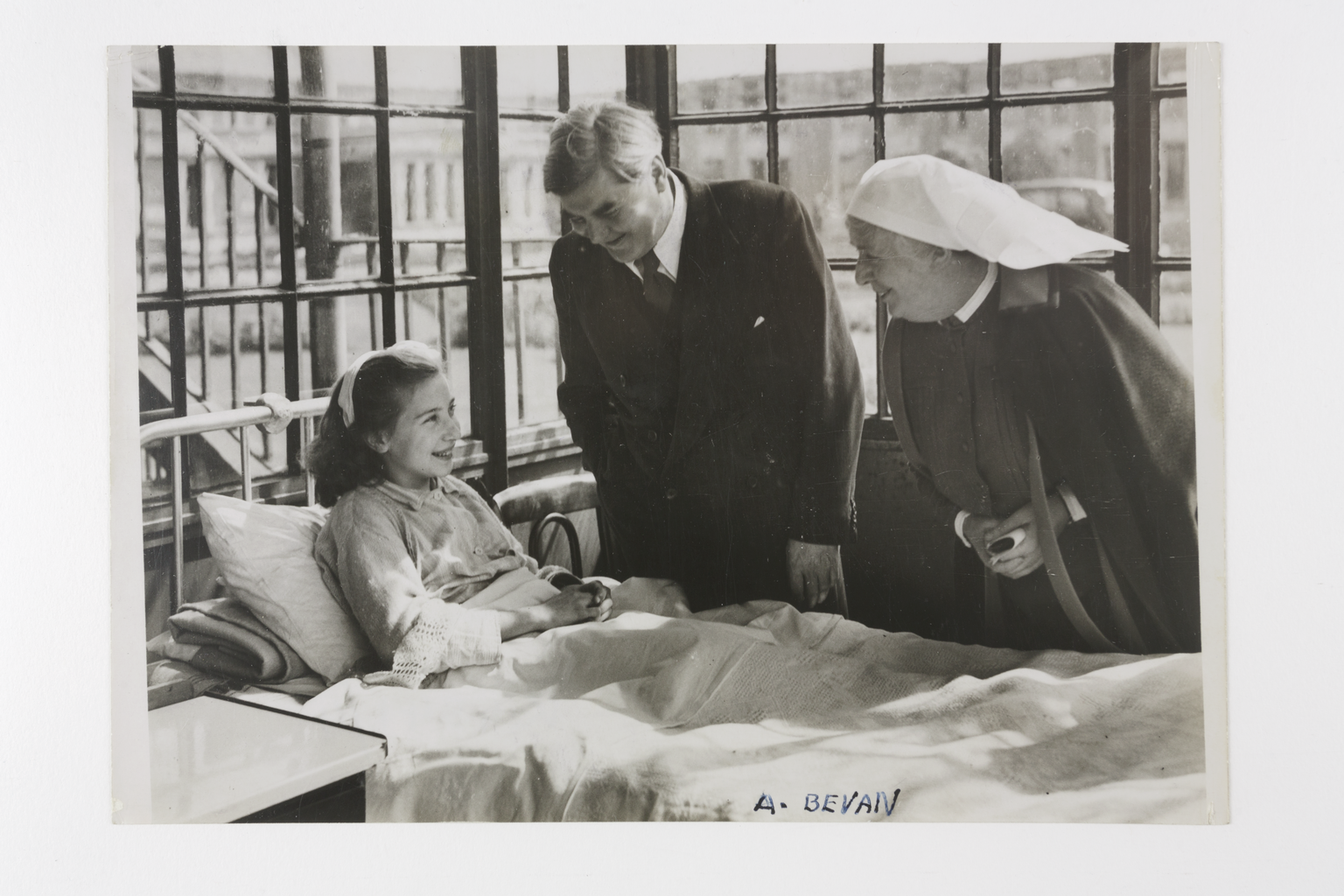
In recognition of the many subsequent years of public service given by NHS staff and volunteers since 1948 and the ‘courage, compassion and dedication’ of NHS staff and volunteers during the pandemic, Queen Elizabeth II awarded the George Cross to the NHS in July 2021.
Representatives of the UK’s four national health services collected the medals in 2022, with NHS England’s medal accepted by Amanda Pritchard, Chief Executive of NHS England, and May Parsons, the NHS matron who gave the first COVID-19 vaccine outside of a clinical trial.
From today (6 July) until the end of 2023 visitors to the Science Museum can see the George Cross medal awarded to NHS England on temporary display in Medicine: The Wellcome Galleries, near objects which highlight the NHS’s 75-year history.
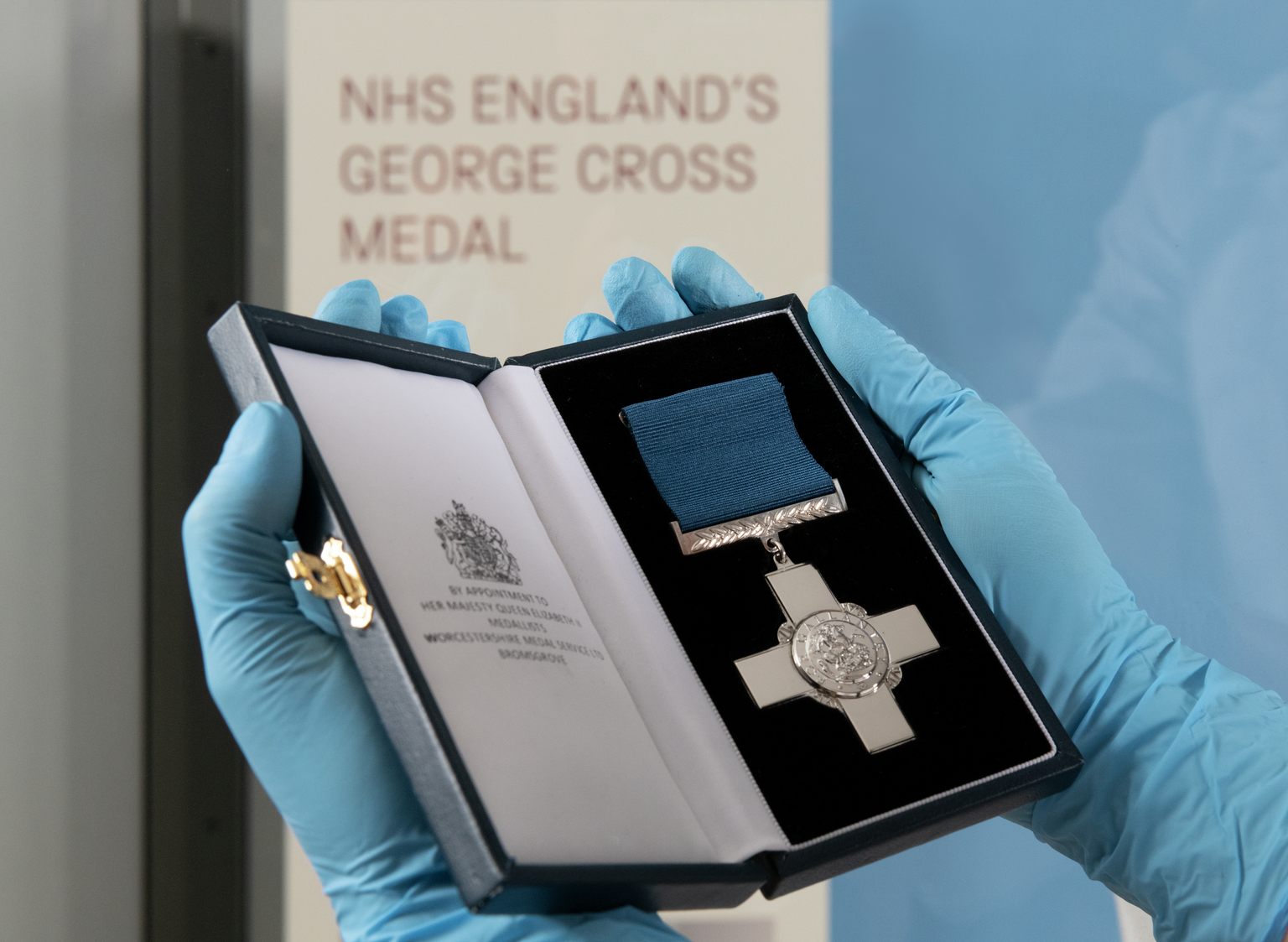
The George Cross was introduced in 1940 by Queen Elizabeth II’s father King George VI, who personally designed many of the details on the medal. It is one of the UK’s highest gallantry awards – given for ‘acts of the greatest heroism or of the most conspicuous courage in circumstances of extreme danger’.
Usually, the George Cross is awarded to individuals. The first recipient was Thomas Hopper Alderson for rescuing people during the Blitz and most recently, in 2017, it was awarded to Dominic Troulan for his actions during the 2013 terrorist attack at the Westgate shopping centre in Nairobi, Kenya.
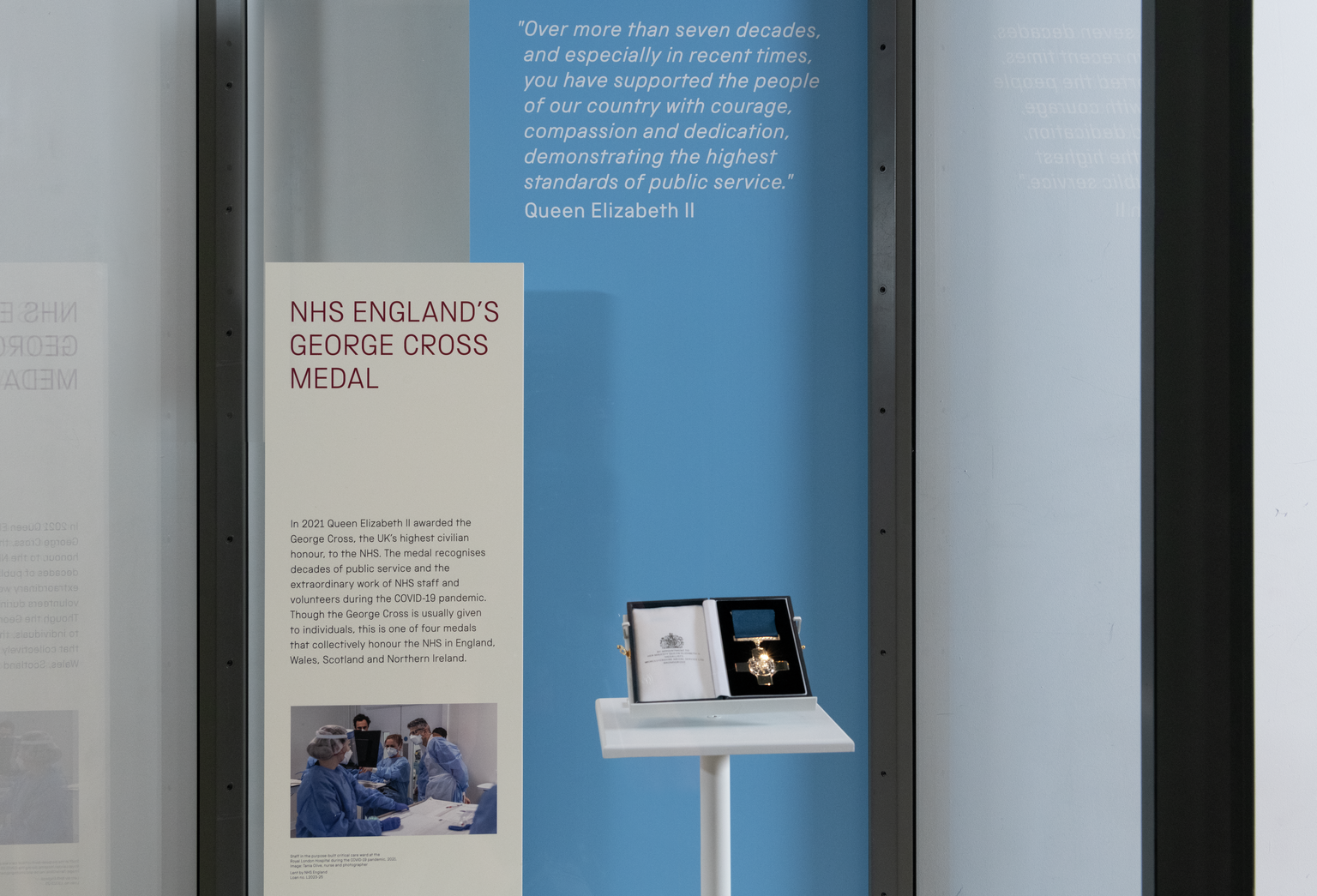
The award of the George Cross to the NHS is a rare and significant honour as this is only the third time the medal has been awarded collectively. In 1942, it was given to Malta, after two years of near constant attack from German and Italian aircraft. Queen Elizabeth II also previously awarded the George Cross collectively to the Royal Ulster Constabulary in 1999.
As well as marking decades of public service by staff across the NHS, the award of the George Cross also recognises the enormous contribution that NHS staff and volunteers, in all roles, made during the COVID-19 pandemic. NHS staff and volunteers worked tirelessly throughout the pandemic.
Their effort and dedication can be seen in every area of the NHS’s work but is particularly highlighted through the success of the COVID-19 vaccination programme. It has been estimated that the vaccines prevented 24 million infections and over 100,000 deaths in the UK.
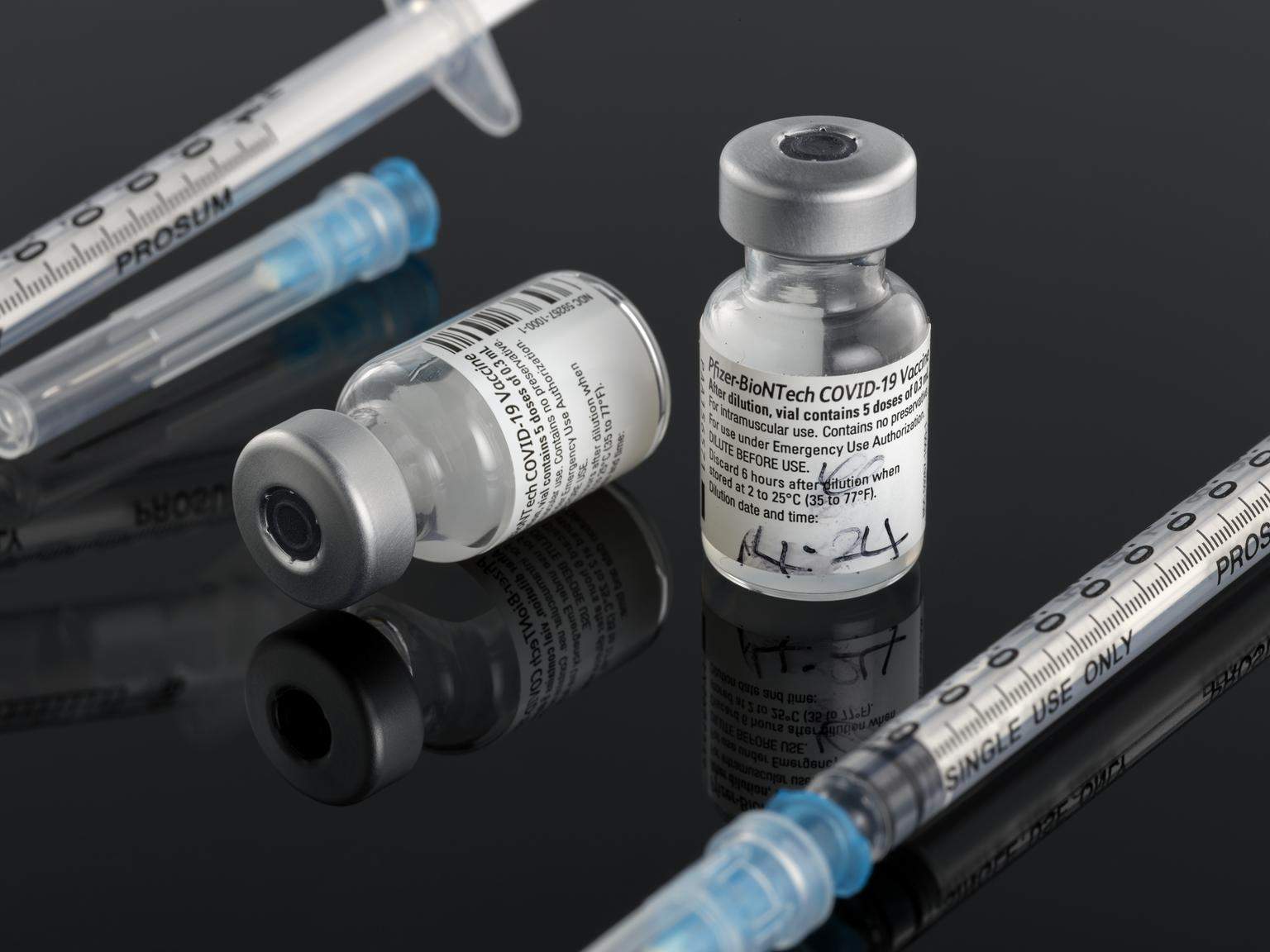
The mass vaccination programme required the NHS to work in new and innovative ways (as can be seen in the Injecting Hope exhibition currently on display in the museum), and staff rose to this challenge. For example, the NHS has never used data more powerfully than during this logistically difficult programme. Those working at all levels of the NHS were crucial to the success of the mass vaccinations and it had huge personal importance to many – one GP noted that ’The arrival of the vaccine meant we GPs finally could do something. We could make a real difference.’
The pandemic had a significant impact on many healthcare workers, including on their mental health. Sadly some healthcare workers died while working on the frontline, with individuals from ethnic minorities disproportionately affected. In the difficult and changing circumstances of the pandemic healthcare staff worked hard to support each other, and efforts were made to protect workers and look after their wellbeing.
Before the mass COVID-19 vaccinations began, using personal protective equipment (PPE) was the main method for healthcare workers to protect themselves. However, with PPE shortages due to high demand, supply issues and low reserves leading to increased risks for healthcare workers, volunteers stepped in to help make PPE for local hospitals.
The Hampstead Gown Factory was set up in April 2020 by the Royal Free Charity to make gowns from surgical drapes. Overall, 614 volunteers made 50,000 surgical gowns, which must be made in an as sterile environment as possible rather than at home. PPE-making initiatives sprang up across the UK. In the strange and difficult circumstances of the first lockdown contributing to support healthcare workers and the NHS gave volunteers a sense of purpose and community.
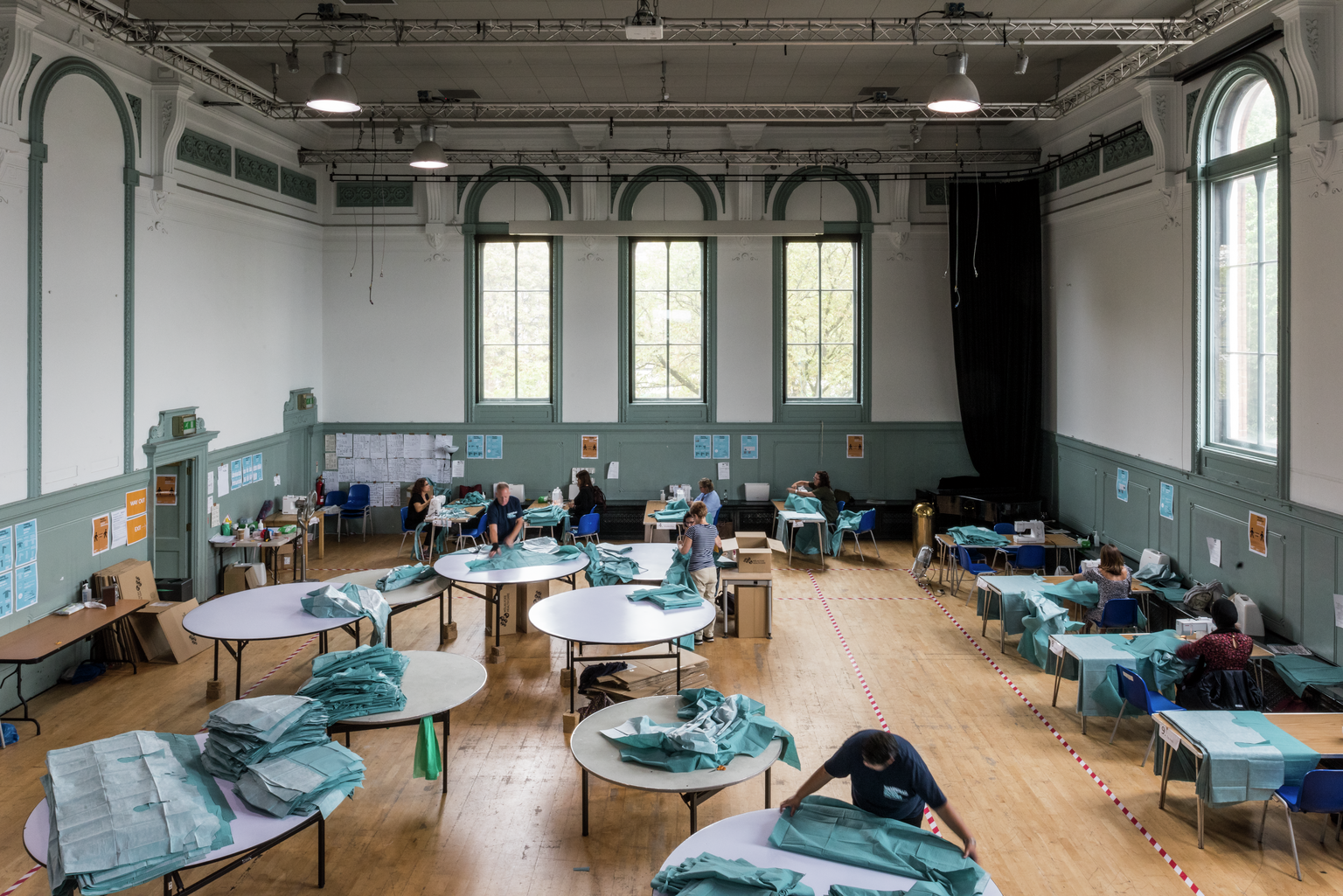
The NHS is one of the largest employers in the world, with more than 1.5 million staff working across a huge number of different roles, all of which were affected by the pandemic. One rarely discussed aspect of the NHS is mortuary and post-mortem services. These services were hugely affected by the significant number of deaths during the pandemic. As part of the Portraits for NHS Heroes project, started in 2020 by artist Tom Croft, Katie Tomkins, Mortuary and Post-Mortem Services Manager at West Herts Hospitals NHS Trust, had her portrait painted by Roxanna Halls.
Each number in the COVID-19 death statistics represents a person lost and a life lived. This way of thinking is central to the work of teams like Katie’s. One hardship caused by the pandemic were restrictions limiting loved one’s from visiting and viewing the people they had lost. Katie’s team had to adapt the way they worked to support grieving families in new and very challenging circumstances. Art works like Roxana’s portrait provide a glimpse into the bravery and fortitude required of healthcare workers in a crisis, and of the people behind the PPE.
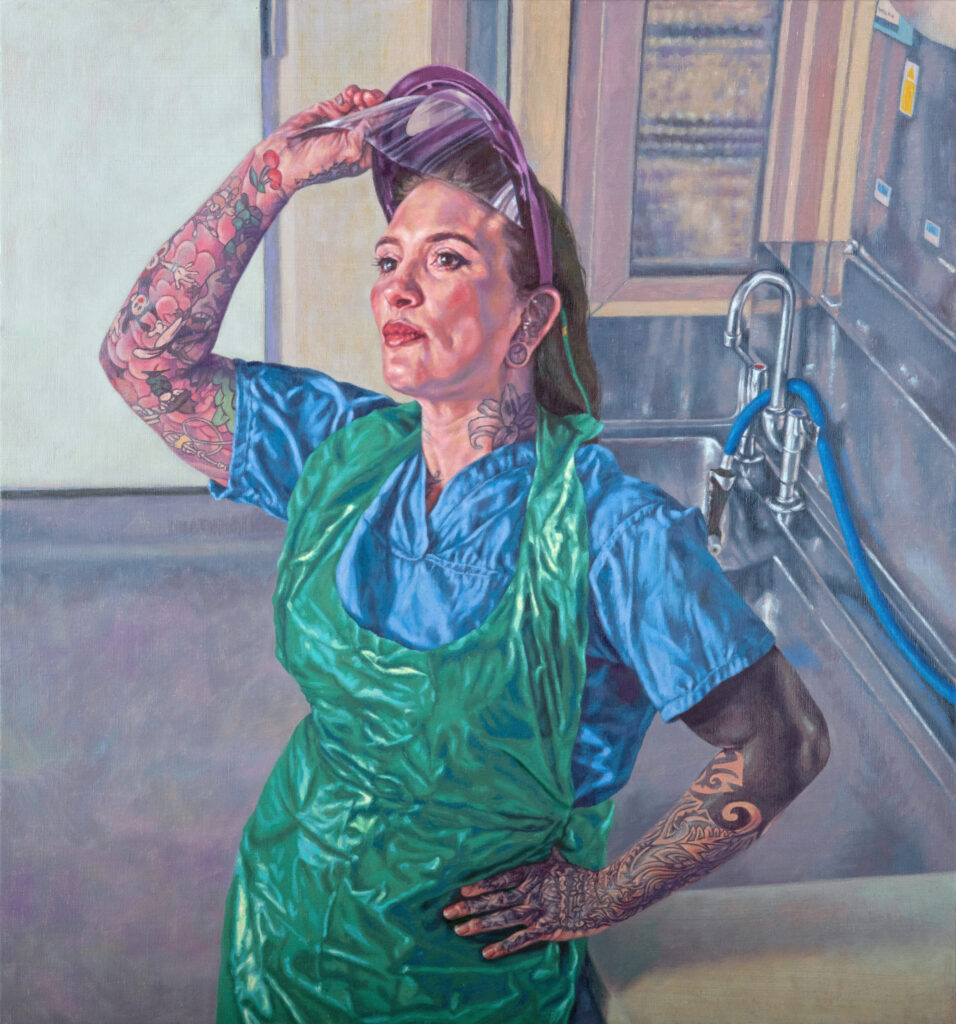
In 2022, the Chief Executive of the NHS Confederation, Matthew Taylor, described the award as ’a fitting tribute to the immense hard work and bravery shown by the millions who work for the NHS, and whilst we celebrate this, we should use the occasion to reflect on the continuing challenges and pressures facing the NHS’.
Both during the COVID-19 pandemic, and for the proceeding 75 years, the NHS and its staff, have made an enormous contribution to the UK making the NHS a national treasure. The award of the George Cross is a rare and significant recognition of this.
The George Cross awarded to NHS England will be on display at the Science Museum from 6 July 2023 – 2 January 2024, at the Science and Industry Museum in Manchester from February 2024 – June 2024 and then at the National Science and Media Museum from August 2024 – January 2025.
To find out more about the history of the NHS and the COVID-19 pandemic, please visit Medicine: The Wellcome Galleries at the Science Museum. To see objects related to the incredible scientific and logistical feat of COVID-19 vaccines, please visit Injecting Hope, which is open at the Science Museum until summer 2024 and then on display at the Science and Industry Museum.